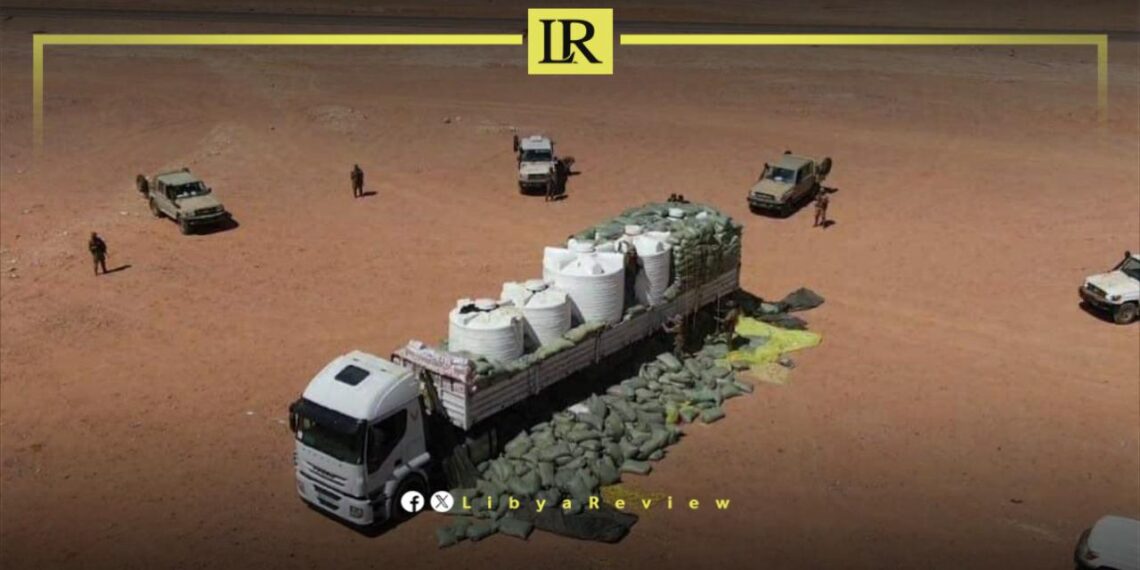Libya’s “444 Combat Brigade,” part of the Government of National Unity, announced that it had successfully intercepted an attempt to smuggle 40,000 litres of fuel across the Libyan desert.
In a statement, the brigade reported that its forces pursued fuel smugglers through remote desert routes, foiling several evasion attempts.
The operation culminated in the capture of a truck loaded with over 40,000 litres of fuel intended for smuggling.
Fuel smuggling severely drains Libya’s resources. The country imports most of its fuel to meet domestic demand, selling it locally with substantial subsidies, reducing the cost by up to 90% of the original price.
A February investigation by Bloomberg revealed that up to 40% of the fuel imported into Libya, valued at billions of dollars, is either re-exported or smuggled out of the country for significant profits.
Last month, the Libyan Ministry of Interior of the Government of National Unity (GNU) announced that desert patrols from the Qarayat Border Security Section successfully intercepted fuel trucks prepared for smuggling in the Hammada al-Hamra region.
According to a statement released by the Ministry of Interior, three fuel trucks were seized, carrying approximately 120,000 liters of fuel. This operation is part of ongoing efforts to combat smuggling, following directives from Acting Interior Minister Major General Emad Trabelsi, with direct oversight from the head of the Border Security Agency.
Fuel smuggling is a significant issue in Libya, exacerbated by the country’s ongoing political instability and economic challenges. Smuggling operations often target subsidized fuel, which is sold at higher prices in neighboring countries. This illicit trade not only drains Libya’s resources but also contributes to a broader spectrum of criminal activities, including armed groups and human trafficking networks.
The vast deserts of southern Libya, particularly regions like Hammada al-Hamra, are frequent routes for smugglers due to their remote and challenging terrain, which makes surveillance and law enforcement difficult.


